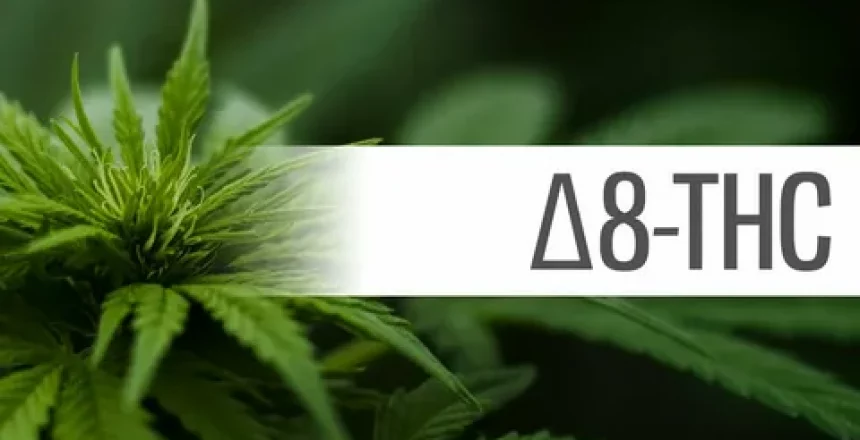Delta- 8 THC is largely illegal in the UK, although CBD products with up to 0.2% THC (delta- 8 or -9) are legal. Still, the legality of delta- 8 THC remains in the gray zones since it is no part of the drug licensing factsheet. Here is everything you need to know about the percentage of delta- 8 allowed in cannabis products in the UK.
When the Farm Bill was passed in 2018, it brought relief to the US citizens who depended on or enthused hemp products. The bill allowed the legal growing of industrial hemp with less than 0.3% THC, meaning you can legally buy CBD edibles, vapes, tinctures, or capsules with less than 0.3% THC, although state laws on CBD vary widely. THC is available in two forms; delta- 9, known for the THC’s ‘high’ effect, and delta- 8 THC, an isomer of delta- 9 that’s is mildly intoxicating. This article discusses what percentage of delta- 8 the UK considers legal in kits cannabis products.
Understanding THC
Before delving into the allowable delta- 8 percentage in the UK, you may want to know what THC means. What is THC? According to Schlienz et al. (2020), THC is the psychoactive compound in cannabis plants. Cannabis plants exist in many strains, including hemp and marijuana, and they have more than 113 active compounds collectively called cannabinoids. THC is just but one of them, and it stands out for being psychoactive or causing the ‘high’ effect. Other cannabinoids include CBC, CBT, CBN, CBG, and the non-psychoactive that’s fast becoming popular in the UK and US because it expresses the desired effects without making one high. Like CBD, you can have THC products in different delivery methods, including edibles, tinctures, capsules, and isolates.
Understanding Delta- 8
If you have consumed THC products, you likely have taken delta- 8 in those products. What, though, is delta- 8, and why is picking up the popularity ladder quite fast? THC is available in two forms, including delta-9 THC, the much-loved cannabinoid that many like for its ‘high’ effect. Meanwhile, delta- 8 is a much milder form of THC and more like an isomer of delta- 9. Ultimately, they are all THC forms and have the ‘high’ effect; only delta- 8 has a milder intoxicating effect. Akpunonu et al. (2021) confirmed that delta- 8 has intoxicating and psychoactive effects and that while they may be great recreational picks, the cannabinoid may cause psychosis in the long run as one continues its uptake.
What Percentage of Delta- 8 Is Allowed in the UK?
As the hype around delta- 8 increases, you may wonder how legal it is in the UK, especially if you are a THC fan. Unfortunately, the legality of delta- 8 THC remains in the gray zone, and we cannot tell how far one can stretch with delta- 8 products in the UK. The drug licensing factsheet does not mention delta- 8 THC anywhere, making things more complicated. Since cannabis, especially marijuana is largely illegal, it is easy to conclude that delta- 8, a THC variant, is equally illegal. However, the UK considers hemp-derived CBD products with less than 0.2% THC legal. While we await the law to clear out things pertaining to the legality of delta- 8 THC in the UK, you can make sure all cannabis products you consume have less than 0.2% THC (delta- 8 or -9)
Why Is Delta- 8 Becoming More Popular?
You might have noticed that delta- 8 THC products are becoming part of the mainstream. However, you also agree that CBD products are more popular than delta- 8 or -9 items. The vast popularity follows the fact that delta- 8 is mildly high, as Akpunonu et al. (2021) already noted. This means that you might not feel mega high, euphoric, or hungry, as does THC, all the more why people like delta- 8. Besides, studies like Mccoy et al. (2018) believe that THC, including the delta- 8 versions, may improve one’s quality of life. Many cannabis lovers take this to heart and believe that delta- 8 might boost their life status.
Are Delta- 8 Products Safe?
Do you anticipate taking delta- 8 products? You may want to know how safe they are. Sadly, we cannot attest to the long-term safety of the cannabinoid. Generally, cannabis studies are limited, and what we know about the cannabinoids is less than what we don’t know about them. In fact, the 2021 FDA report showed that delta- 8 THC products might contain contaminants and other dangerous chemicals. As such, the report advised against offering children delta- 8 products, including cookies.
Delta- 8 in the US
Like the UK, the US allows CBD products from hemp but with limitations. The products must not only come from hemp but might have less than 0.3% THC. The laws do not go down to how much delta- 8 is allowed, but it is within the confines of the less than 0.3% limit by dry weight. As such, you need to go slow on delta- 9 products in the US. The federal law considers marijuana illegal, but 33 states and 10 others have made it legal for medical and recreational purposes, respectively.
Should I Buy Delta- 8 Products?
It is undoubtedly true that delta- 8 products are becoming more and more popular as time goes by. It is no wonder that many people are embracing it, and you may rightfully want to consider buying its products. However, Kruger & Kruger (2022) reported that the FDA pointed out the lack of information on THC and D8. As such, it is not impossible to come across substandard delta- 8 products, especially because the cannabis industry is largely unregulated. In addition to the insufficient information and the legal gray zone of the cannabinoid, you might as well choose to play on the safe side by avoiding them.
Conclusion
Delta- 8 is an isomer of delta- 9, a form of the psychoactive THC. Although it is not strongly psychoactive as delta- 9, it causes the ‘high’ effect, so you need to go slow on its products. How much delta- 8 is allowed in cannabis products in the UK remains in the gray zone. The drug licensing factsheet does not talk about delta- 8 THC, although hemp-derived CBD products should not have more than 0.2% THC.
References
Akpunonu, P., Baum, R. A., Reckers, A., Davidson, B., Ellison, R., Riley, M., … & Gerona, R. (2021). Sedation And Acute Encephalopathy In A Pediatric Patient Following Ingestion Of Delta-8-Tetrahydrocannabinol Gummies. The American Journal Of Case Reports, 22, E933488-1. Https://Www.Ncbi.Nlm.Nih.Gov/Pmc/Articles/Pmc8594112/
Kruger, J. S., & Kruger, D. J. (2022). Delta-8-THC: Delta-9-THC’s Nicer Younger Sibling?. Journal Of Cannabis Research, 4(1), 1-8. Https://Jcannabisresearch.Biomedcentral.Com/Articles/10.1186/S42238-021-00115-8
Mccoy, B., Wang, L., Zak, M., Al‐Mehmadi, S., Kabir, N., Alhadid, K., … & Snead III, O. C. (2018). A Prospective Open‐Label Trial Of A CBD/THC Cannabis Oil In Dravet Syndrome. Annals Of Clinical And Translational Neurology, 5(9), 1077-1088. Https://Onlinelibrary.Wiley.Com/Doi/Abs/10.1002/Acn3.621
Schlienz, N. J., Lee, D. C., Stitzer, M. L., & Vandrey, R. (2018). The Effect Of High-Dose Dronabinol (Oral THC) Maintenance On Cannabis Self-Administration. Drug And Alcohol Dependence, 187, 254-260.Https://Www.Sciencedirect.Com/Science/Article/Pii/S0376871618301844
Anastasia Filipenko is a health and wellness psychologist, dermatolist and a freelance writer. She frequently covers beauty and skincare, food trends and nutrition, health and fitness and relationships. When she’s not trying out new skincare products, you’ll find her taking a cycling class, doing yoga, reading in the park, or trying a new recipe.
- CBD Pills Vs CBD Capsules - August 5, 2023
- CBD Capsules User Manual - August 5, 2023
- Bleugenius Marijuana Strain - July 28, 2023




